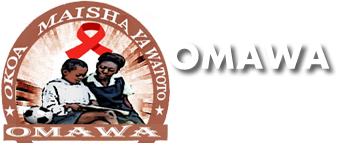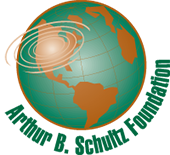What to Bring
Packing is part of the experience!
Packing for your time in another country can be challenging. Tanzania is a hot, tropical country with two Wet Seasons and two Dry Seasons. However, the weather in Moshi can change at any time so it’s best to be prepared.
Dress code while performing OMAWA duties
Please note that Tanzania is a very modest culture when it comes to physical dress. It is important that you dress appropriately so that you do not offend the local people. We want our volunteers to adhere to native cultural standards and to respect the Tanzanian way of dress as we are their guests.
Women:
Whatever you wear on the bottom must go below the knee. Skirts are a staple item for your wardrobe and pants/capris are appropriate as well. Shorts are not acceptable at school or in town (but may be worn in the volunteer house). Your tops should be modest and must cover your shoulders. Tank tops are acceptable for foreigners to wear around town but cannot be worn during any of our programs. Please dress modestly and conservatively. You represent your home country and Western society and we want to discourage the local view that Western women are “strong but loose.” We appreciate your cooperation.
Men:
Your daily attire will consist of long pants and t-shirts or button-up shirts. All shirts must have sleeves. Longer shorts are acceptable around town for foreigners but local men would never wear them.
Swimming:
Western style bathing suits are acceptable in Zanzibar since most of the beaches are private and cater to tourists. Bikins may be worn at pools at private hotels. Swimming in local rivers is discouraged due to various parasites living in the water.
Shoes:
Flip flops and closed shoes are both useful. Keep in mind that most of the roads are very dusty (dry season) or muddy (rainy season) so don’t bring your new pair of white sneakers.
What else to bring?
General Check List based on season and 2 week stay (assuming you will wash your laundry):
| Items | Rainy Season | Dry Season |
| Flip Flops | 1 | 2 |
| Closed in shoes | 1 | 1 |
| Rubber boots | 1 | 0 |
| Skirt | 3 | 3 |
| Long pants (men) | 3 | 3 |
| Long pants (women) | 1 | 1 |
| Capris (women) | 1 | 1 |
| Track pants | 1 | 1 |
| T-shirt – short sl./tank top | 5 | 5 |
| T-shirt – long sl. | 2 | 2 |
| Sweatshirt | 1 | 2 |
| Rain jacket | 1 | 0 |
| Sun hat | 1 | 1 |
| Pajamas | 2 | 2 |
| Bathing Suit | 1 | 1 |
| Toothbrush | 1 | 1 |
| Toothpaste | 1 | 1 |
| Hair brush | 1 | 1 |
| Shampoo | 1 | 1 |
| Soap | 1 | 1 |
| Sun lotion (no scent) | 1 | 1 |
| Bug spray | 1 | 1 |
| Water bottle | 1 | 1 |
| Bag (for shopping/around town) | 1 | 1 |
| Alarm clock | 1 | 1 |
| Hand sanitizer | 1 | 1 |
| Hand wipes | 10 | 10 |
| Toilet paper (travel size) | 1 | 1 |
| Small first Aid kit | 1 | 1 |
| Towel (travel towel recom.) | 2 | 2 |
Please note:
Mosquito nets over your bed are provided as are sheets, pillows and blankets.
If you are planning on attending a safari, warmer clothing and a sleeping bag are recommended as it is cooler at night and in the Ngorongoro crater. This equipment can be rented in Moshi if you desire.
If you are planning to climb Mt. Kilimanjaro, your packing needs will be very specific. Climbing companies’ websites provide useful lists and all gear and equipment can be rented in Moshi if you don’t want to carry it from home.
Items such as toothpaste, shampoo, and other hygiene products may be purchased at a local store if you run out.
There is wonderful local clothing you can purchase in Moshi, such as batik skirts, bags, and scarves, which will add to your wardrobe. You can also have clothing custom-made for very low prices.
Other important information:
Bank machines are available in town, so you will be able to withdraw cash
Local currency is the Tanzanian Shilling (Tsh) and the U.S. dollar is also widely accepted
U.S. dollars must be from the year 2006 or later
Local exchange bureaus change most major currencies (Euro, U.S., CAN$, Pound) into Tsh but few places exchange traveller’s cheques
Moshi has several cafes, restaurants, and internet cafes
Medical Considerations
Vaccinations:
Prior to your departure, please visit your doctor and/or local travel clinic to get advice on the various and most appropriate vaccinations. Tanzania is in the ‘Malaria belt’ so please consult your doctor regarding malaria prevention. Please note that OMAWA does not offer medical advice.
Medical Issues:
In case of a medical emergency, we will accompany you to a local hospital (KCMC) which is 5 minutes by car from the volunteer house. KCMC is a modern hospital where you can get good medical care. For more minor health issues, there are a number of private clinics in town that provide good care for reasonable prices.
Travel and Health Insurance:
Volunteers must obtain travel and health insurance prior to their departure that includes emergency repatriation. OMAWA does not assume health and travel-related costs for volunteers. A copy of your insurance must be e‐mailed to OMAWA 4 weeks prior to your arrival







